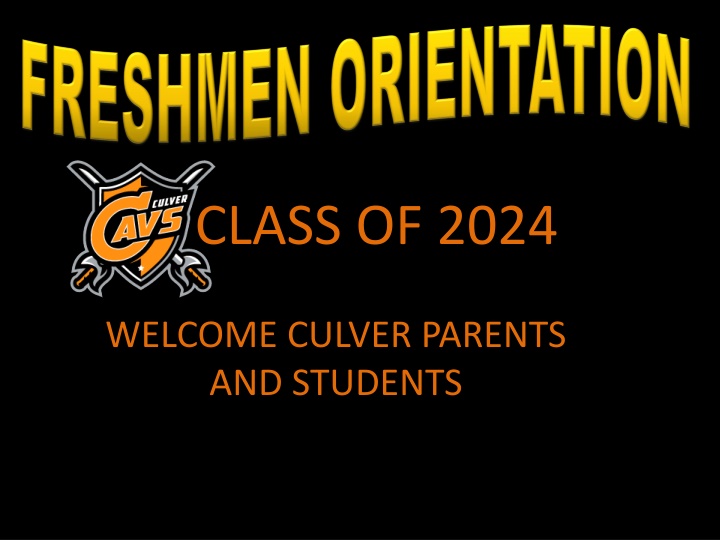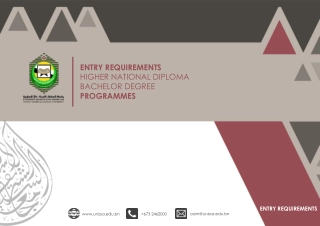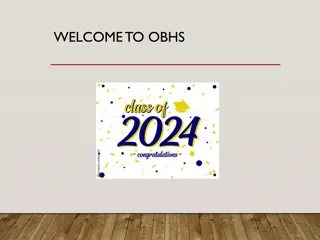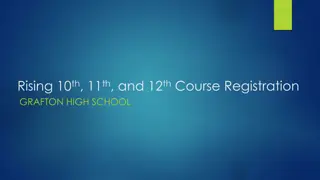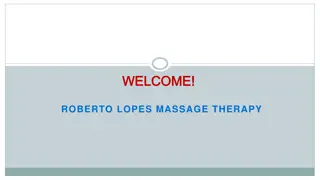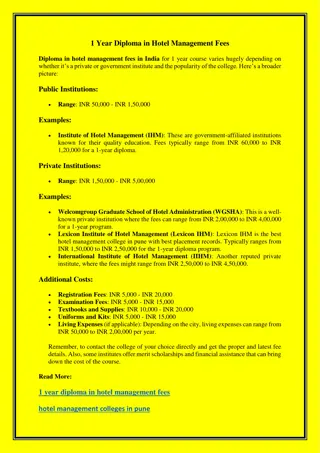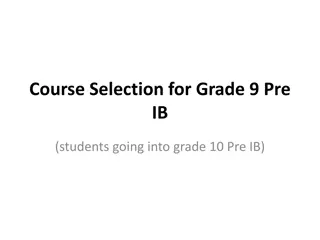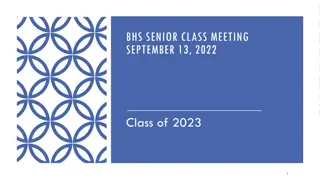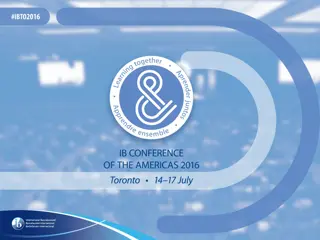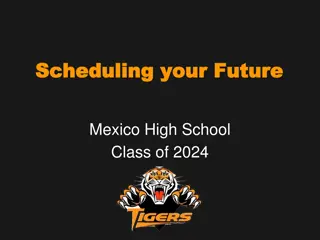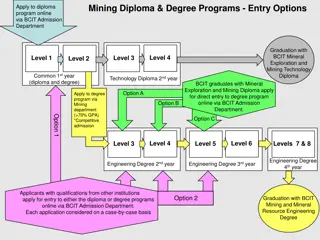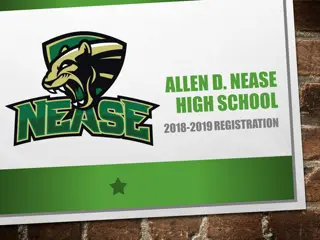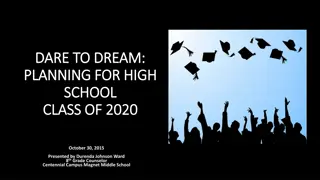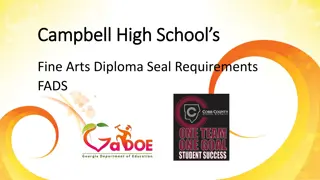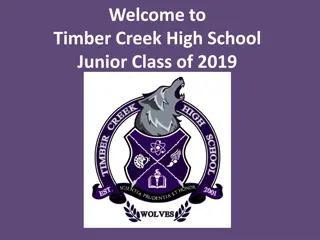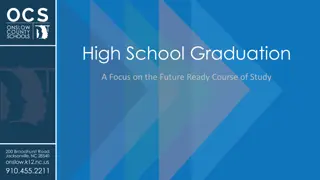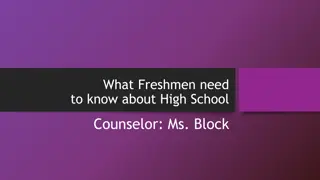High School Diploma Options and Requirements
Indiana offers different high school diploma options such as Core 40, Core 40 Academic Honors, and Core 40 Technical Honors. Each diploma type has specific subject area credits and course requirements to fulfill. Students must choose a pathway that aligns with their academic goals and career aspirations to earn a high school diploma. Understanding these options and requirements is crucial for students and parents as they navigate through high school education towards graduation.
Download Presentation

Please find below an Image/Link to download the presentation.
The content on the website is provided AS IS for your information and personal use only. It may not be sold, licensed, or shared on other websites without obtaining consent from the author.If you encounter any issues during the download, it is possible that the publisher has removed the file from their server.
You are allowed to download the files provided on this website for personal or commercial use, subject to the condition that they are used lawfully. All files are the property of their respective owners.
The content on the website is provided AS IS for your information and personal use only. It may not be sold, licensed, or shared on other websites without obtaining consent from the author.
E N D
Presentation Transcript
CLASS OF 2024 WELCOME CULVER PARENTS AND STUDENTS
Your first step is learning the Language of High School CTE Pathway Dual Credit Work-Based Learning
What does it take to Earn a High School Diploma? Diploma Type Core 40 Academic Honors Technical Honors General Diploma 1 2 3 Learn & Demonstrate Employability Skills Postsecondary Ready Competencies
Indiana High School Diploma Options oCore 40 oCore 40 Academic Honors oCore 40 Technical Honors 1
CORE 40 DIPLOMA Subject Area Credits Literature, Composition, and Speech English 9 12 fulfills this requirement Algebra I, Geometry, Algebra II Must take a math or quantitative reasoning course each year ENGLISH 8 MATH 6 2 Credits: Biology I 2 Credits: Chemistry I, Physics I, or Integrated Chemistry/Physics plus 2 Credits: any Core 40 science course SCIENCE 6 2 Credits: World History & Civilization or Geography & History of the World 2 Credits: U.S. History 1 Credit: U.S. Government 1 Credit: Economics SOCIAL STUDIES PHYSICAL ED. HEALTH DIRECTED ELECTIVES 6 2 1 Health and Wellness 5 World Language or Fine Arts or Career & Technical Education Career Academic Sequence recommended ELECTIVES 6 TOTAL 40 Credits to earn a Core 40 Diploma
Core 40 Core 40 with Academic Honors with Academic Honors 47 Credits Subject Area Credits Literature, Composition, and Speech English 9 12 fulfills this requirement Algebra I, Geometry, Algebra II, plus any Core 40 Math Class Must take a math or quantitative reasoning course each year 47 Credits Classes English/LA 8 Math 8 2 Credits: Biology I 2 Credits: Chemistry I, Physics I, or Integrated Chemistry/Physics 2 Credits: any Core 40 science course Science 6 2 Credits: World History/Civilization or Geography & History/World 2 Credits: US History 1 Credit: US Government 1 Credit: Economics Social Studies World Languages Fine Arts Physical Ed. Health Electives TOTAL 6 6 credits in a single language or 4 credits in each of two different languages 6 - 8 Music, Theatre, Visual Arts 2 2 1 Health & Wellness Core 40 courses 7- 8 47 Credits required for Core 40 with Academic Honors
Core 40 with Academic Honors 47 Credits There are a few more requirements . . . Grade Requirements Earn a grade of C or better in courses that will count toward the diploma Have a grade point average of a B or better NOTE: Students do not have to be in Honors Classes to earn an Academic Honors Diploma.
Core 40 with Academic Honors 47 Credits There are a few more requirements . . . Complete one of the following: A. Earn 4 credits in 2 or more AP courses and take corresponding AP exams B. Earn 6 verifiable transcripted college credits from the approved dual credit list C. Earn the following two: 1. Minimum of 3 transcripted college credits 2. Two credits in AP courses/corresponding exams D. Earn a composite score of 1750 or higher on the SAT critical reading, math, and writing sections and a minimum score of 530 on each section E. Earn an ACT composite score of 26 or higher and complete the written section
Core 40 Core 40 with Subject Area with Technical Honors Technical Honors 47 Credits 47 Credits Credits Classes Literature, Composition, and Speech English 9 12 fulfills this requirement Algebra I, Geometry, Algebra II Must take a math or quantitative reasoning course each year English/LA 8 Math 6 2 Credits: Biology I 2 Credits: Chemistry I, Physics I, or Integrated Chemistry/Physics 2 Credits: any Core 40 science course Science 6 2 Credits: World History/Civilization or Geography & History/World 2 Credits: US History 1 Credit: US Government 1 Credit: Economics Social Studies 6 Earn 6 credits in a state-approved College & Career Pathway and one of the following: 1. State approved industry-based certification or credential 2. Pathway dual credits resulting in 6 transcripted college credits College and Career Pathways 6 or more Physical Ed. 2 Health & Wellness Health 1 Core 40 courses, World Languages, Fine Arts, or other CTE courses. Electives TOTAL 5 - 9 Credits required for Core 40 with Technical Honors 47
Core 40 with Technical Honors 47 Credits There are a few more requirements Grade Requirements Earn a grade of C or better in courses that will count toward the diploma Have a grade point average of a B or better Complete One of the following A. Any one of options (A-E) of the Core 40 with Academic Honors B. Earn the following scores on WorkKeys: Reading for Information Level 6 Applied Math Level 6 Locating Information - Level 5 C. Earn the following minimum scores on Accuplacer: Writing 80; Reading 90; and Math 75
Indiana Grad Pathway Steps 2 & 3 2 3 Learn & Demonstrate Employability Skills Postsecondary Ready Competencies
Employability Skills 2 Career Mindset Self-Management Skills Learning Skills Social Skills Workplace Skills Demonstrated via work products, extra-curricular participation, employment, and other school approved activities/programs. Indiana Department of Workforce Development
Employability Skills Student MUST complete one of the following to meet the Employability Skills Graduation Pathway A. PROJECT-BASED LEARNING Currently there are no defined PBL opportunities. 2 B. SERVICE-BASED LEARNING School sponsored activities including athletic participation, co-curriculars. Approved service based experiences completed outside of the school day. All experiences verified via sponsor or coach. C. WORK-BASED LEARNING Employment with employer verification or completion of school based work program.
Employability Skills 2 How is the Employability Skills Experience documented? WORK PRODUCT All Students are Required to Complete a Senior Portfolio: Resume with three references and a cover letter Credit Tracking Form/Official Transcript Indiana Career Explorer Summary Report Completed College Application OR Employment Application 21st Century Scholars Only MUST Complete Scholar Track STUDENTS WILL CHOOSE ONE WBL or SBL in addition to completing their senior portfolio.
Employability Skills 2 When can these experiences begin? Anytime between July 1 prior to freshman year through graduation Can be during the school day, after school, during breaks, etc. How long do they have to last? There is not a set number of hours for the Employability Skills experience, but the experience must be sustained over a period of time, such as: One Semester 75-100 hours or more Marked by earning a credit Other local CHS requirement
3 POSTSECONDARY-READY COMPETENCIES What does this mean? Postsecondary refers to the additional education or training options that you can select from after high school, such as, apprenticeship training, military, entering a career training program, earning certification required for a specific career, attending a two or four- year college, or other options. WHY? High school is that time period that you learn about and prepare for a specific career area through the classes you take and the activities you participate in to develop your employability skills. These experiences will help you select the right postsecondary option that aligns with your career area of interest. The Postsecondary Ready Competency graduation requirement means you have to prove your postsecondary readiness through one of several options:
3 POSTSECONDARY-READY COMPETENCIES Students must complete ONE of the experiences below Core 40 with Academic or Technical Honors Diploma Advanced Placement Courses or Dual Credits SAT or ACT Career & Technical Education Concentrator Industry Certification ASVAB
3 POSTSECONDARY-READY COMPETENCIES Core 40 with Honors Diploma Advanced Placement Courses or Dual Credits SAT ACT Academic Honors Technical Honors Evidence Based Reading & Writing=480 Math=530 English = 18 or Reading = 22 AND Math = 22 or Science = 23 Must earn a C average or higher in at least three(3) courses One of the three courses must be in core content or be part of a CTE Pathway Can Super score Must meet individual scores in each subject Can Super score
3 POSTSECONDARY-READY COMPETENCIES Career & Technical Education Concentrator Industry Certification ASVAB AFQT Must earn one certification from the Industry Certification list approved by the Department of Workforce Development The Must earn a C average or higher in at least 2 advanced courses in a CTE Pathway minimum AFQT score a student must earn is 31 *Important to select a career area of study while in high school
CAREER OPTIONSFind What Interests You! CTE Pathway Career & Technical Education Pathway A Career Pathway is a series of classes focused on a specific career field. These classes provide opportunities for students to learn about a career area and may include dual credit options, industry certification, and/or work-based learning experiences through internships or job placement. CCMHS provides students numerous Career Pathway options at the school and NCAVC North Central Area Vocational Cooperative Take advantage of these CTE Pathway courses by planning these classes into your high school schedule
CAREER PATHWAYS MORE OPTIONS Program Provider CCMHS CCMHS NCAVC CCMHS CCMHS NCAVC NCAVC CAREER AREA Agriculture Agriculture Architecture & Construction Agriculture Business & Marketing Education & Training Education & Training CAREER PATHWAY PROGRAM Agribusiness Animal Science Construction Technology Food Science Entrepreneurship & Management Focus Early Childhood Education & Services Education Careers Health Science Health Science Careers NCAVC Hospitality & Human Services Culinary Arts NCAVC Information Technology Networking NCAVC Manufacturing & Logistics Welding Technology NCVAC Public Safety Transportation & Logistics Transportation & Logistics Criminal Justice Automotive Technology Aviation Flight & Operations or Aviation Maintenance NCAVC NCAVC NCAVC
What do successful high school students need to do? Select a broad career field in high school Select courses that prepare you for this career Research the jobs in this career to find out options Make every course selection count Attend school regularly and on time 95% attendance rate Participate in school and community based activities
Remember You need to complete these three (3) tasks to earn a CCMHS Diploma! 1 2 3 Diploma Credits Learn & Demonstrate Employability Skills Postsecondary Ready Competencies Culver Community Middle High School
